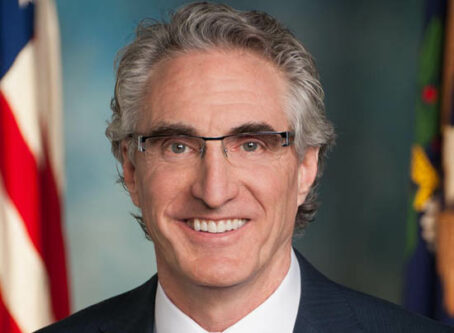Eight states pursue rules on ticket cameras
State legislatures around the country are discussing action on the use of automated cameras to ticket drivers.
More than 500 communities around the country employ the use of red-light and/or speed cameras to nab drivers who disobey traffic rules, the Insurance Institute of Highway Safety reports.
Officials with the Owner-Operator Independent Drivers Association say the focus on the revenue-generating devices ignores the more logical and reasoned approach to roads and traffic: keep traffic moving in as safe a manner as possible.
Below is a sampling of legislation introduced since the first of the year in states from Connecticut to Wyoming.
Connecticut
One Connecticut state lawmaker wants to be proactive in addressing concern about the use of red-light cameras.
Currently, there are no communities in the state using red-light or speed cameras.
Sponsored by Rep. Kara Rochelle, D-Ansonia, the bill would prohibit the use of red-light cameras in the state. The bill does not address speed cameras.
HB6078 is in the Joint Transportation Committee.
Indiana
Three bills at the Indiana statehouse cover the use of ticket cameras along certain stretches of roadway throughout the state.
State law now authorizes fines of $300 to $1,000 for speeding in work zones. Statute does not allow nor prohibit the use of speed cameras.
The House Roads and Transportation Committee voted unanimously Feb. 8 to advance a bill to authorize the Indiana State Police to set up cameras in highway work zones to enforce speeds.
Sponsored by House Roads and Transportation Chairman Jim Pressel, R-Rolling Prairie, the bill calls for vehicle owners to receive $75 fines in the mail for exceeding the posted speed by at least 12 mph. Devices would be in use when workers are present.
Signs would be posted ahead of the work zones warning drivers about camera enforcement.
A fiscal impact statement attached to the bill shows an average of 1,800 guilty verdicts in Indiana were entered for speeding in a work zone annually over the past six years.
Ticket revenue would be distributed to the Indiana Department of Transportation and the Indiana State Police.
Before violations are sent out, a third party would review the incident. A state trooper would then give a final review.
The Indiana Motor Truck Association spoke to the committee in favor of the bill, despite concerns about a third-party being in charge of reviewing violations.
Lt. Brad Hoffeditz, Indiana State Police legislative director, told the committee the state police does not support the bill as introduced.
He cited concern about requiring state police to review each violation. Instead, Hoffeditz said stationing an officer in a work zone would be more effective than employing a camera.
“The thing we teach day one in traffic law is the best way to gain voluntary compliance with the laws is to be present,” Hoffeditz testified.
The bill, HB1465, could soon be considered on the House floor.
A second bill, HB1388, calls for repeat offenders to receive fines in the mail of up to $75 for exceeding the posted speed by at least 11 mph. Devices would be in use when workers are present.
Signs would also be posted ahead of the affected area to warn drivers about the automated cameras.
Ticket revenue would be routed to a new trooper family relief fund.
HB1388 is in in the House Roads and Transportation Committee. The Senate version, SB41, is in the Senate Homeland Security and Transportation Committee.
Iowa
An Iowa House bill would ban the use of all ticket cameras.
The nonpartisan Legislative Services Agency has reported that eight cities around the state operate, or have operated, a total of 78 speed and red-light camera devices. It is estimated the cities collected $12 million in revenue via the devices over a one-year period.
Sponsored by Rep. Skyler Wheeler, R-Orange City, the bill would prohibit ticket programs starting July 1, 2021.
The Iowa Department of Transportation previously ordered cameras around the state to be turned off.
The cities of Des Moines, Cedar Rapids and Muscatine later challenged the decision in court. The Iowa Supreme Court agreed with the cities in April 2018 in a ruling that the department does not have the authority to order cities to remove cameras from highways and interstates.
As a result, the final decision on traffic cameras must be made by the Legislature.
The bill, HF249, is in the House Public Safety Committee.
Maryland
Multiple efforts underway at the Maryland statehouse cover the use of traffic control signal monitoring systems.
There are six counties around the state that have red-light camera programs. The city of Baltimore and 22 other jurisdictions use the devices. Violators face fines up to $100.
Three bills (HB618, HB627 and HB978) would authorize the use of speed cameras at individual locations in Prince George’s County. A separate bill, HB971, would allow a speed camera to be posted along state Route 333 in Talbot County.
Another bill, HB967, would authorize two cameras to be posted on Interstate 83 in Baltimore City
The bills are in committee.
New York
One New York bill would allow the state to move forward with placing speed cameras in construction zones.
Data from the New York State Department of Transportation shows that over a seven-year period there were 3,450 wrecks in work zones on state highways. There were 50 fatalities and more than 1,100 injuries to drivers and workers.
“Stronger enforcement of speeding in work zones has the potential to significantly reduce both the incidence of motorists and worker fatalities while training better overall motorist behavior,” Assemblyman William Magnarelli, D-Syracuse, wrote in justification for the change.
The bill, A485, is in the Assembly Transportation Committee.
Oklahoma
An Oklahoma Senate bill on the move would prohibit the use of red-light cameras in the state.
Currently, there is no community in the state that employs the ticketing mechanism.
The Senate Public Safety Committee voted to advance a bill to forbid all law enforcement agencies in the state from contracting with a private entity to setup photo monitoring devices to detect traffic violations.
Sponsored by Rep. Nathan Dahm, R-Broken Arrow, SB441 has moved to the Senate.
A bill in the House Transportation Committee would allow the use of speed cameras in construction or maintenance zones. HB1814 specifies that construction or maintenance workers must be present during the time of the violation.
Authorized use of the equipment would be limited to work areas operated by the Oklahoma Department of Transportation or the Oklahoma Turnpike Authority.
Sponsored by Rep. Mark McBride, R-Moore, the bill specifies that vehicle owners would not be held liable for recorded violations if the driver at the time of the violation cannot be identified via the photograph or other recorded images.
Rhode Island
Pursuit underway at the Rhode Island statehouse would authorize the expansion of the state’s speed camera program.
Currently, municipalities around the state are allowed to adopt ordinances to use speed cameras in school zones. The cities of Pawtucket and Providence are the only locales to act. Violators face $50 fines.
A Senate bill would authorize the use of speed cameras on all state and local roads.
S64 is in the Senate Judiciary Committee.
Wyoming
In Wyoming, a bill would allow the use of ticket cameras to enforce multiple traffic violations. Among the violations included are speed limits, size and weight limits.
Fine amounts would be in line with existing statute for affected violations.
Sponsored by the Joint Transportation, Highways and Military Affairs Interim Committee, SF3 includes a requirement for signs to be posted to alert travelers about use of ticket cameras.
The fiscal note attached to the bill estimates that if cameras are fully implemented along interstates 80 and 25, in Teton Pass, and in construction zones and school zones, citation revenue could top $7 million annually. LL
More state trends
Keith Goble, state legislative editor for Land Line Media, keeps track of many trends among statehouses across the U.S. Here are some other articles by him.









